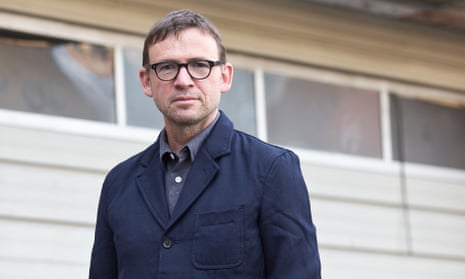One Day author David Nicholls has spoken of how “a town without a bookshop is missing something”, as figures show that 57 independent bookshops closed in the UK last year.
According to the Booksellers Association, the number of independent booksellers in the UK continues to decline. Ten years ago, in 2005, there were 1,535; five years ago, in 2010, there were 1,159; and in 2014, there were 939.
Giving the keynote speech at the London Book Fair’s Digital Minds conference on Monday, the bestselling writer spoke of the six months he has spent touring with his latest novel Us, published last autumn. During the publicity tour he noticed the closure of stores in New York and London, singling out the loss of Exmouth Market’s Clerkenwell Tales for particular regret. “I felt an all too familiar sadness, usually accompanied by guilt because while you’re sorry the shop has gone, you’re also vaguely aware that you hadn’t bought anything there for a while,” he told his audience.
For all the ease and convenience of online shopping or the digital download, I still feel a town without a bookshop is missing something. I grew up in one – the only books you could buy in my home town were those that came on a rotating stand in Woolworths, thrillers by James Hadley Chase and Alistair Maclean. While I loved James Herbert as much as the next teenage boy, this wasn’t enough, which is why the public library was so important to me and why, when a bookshop finally arrived in our nearest city, a branch of Dillons in the early 1980s, it seemed a kind of paradise.
Nicholls spoke of his years as a bookseller, running the children’s department in Waterstones Notting Hill and “believing, like all booksellers, that books are somehow special, that the expertise and enthusiasm of booksellers is vital, that if you love bookshops you should spend money there, and that to discover a book on display in a well-staffed, lovingly maintained shop, to hold it in your hand then to sneak off and buy the same book online, is really just a genteel form of shoplifting”.
Revealing that he had been asked by an ebook retailer if he would like to know at what page readers who abandoned his novel stopped reading, “because if I knew what they didn’t like, maybe I could fix it, make it better”, Nicholls told gathered book professionals that “the debate between digital and physical has had a kind of gladiatorial flavour”.
On one side, he said, there’s “the book as object, libraries and shops, traditional publishers and the literary pages and, on the other, online retail and the digital download, new models of publishing and social media. Cavaliers versus Roundheads, or perhaps more accurately, for someone of my age at least, Betamax versus VHS, with only one survivor allowed. All too often in this debate I’ve felt like the proud owner of a vast collection of Betamax.
“My love of the book as object, and by extension the public library and bookshop, has to do with the way stories are experienced, remembered, shared and passed on. No one has yet found a way to unwrap digital data, to turn it into something you cherish, or to give online browsing the same pleasure, satisfaction and sense of discovery as walking around a bookshop,” he said.
Although he reads a lot on his e-reader, Nicholls said he doesn’t want a soundtrack to a book, or sound effects or illustrations or an audio commentary from the author, and he doesn’t want to “interact” with the story. “When I was a child I used to read those fantasy books where you got to decide on what happens next and they were always, without exception, deathly. Fiction is about telling; I want to be told. I want the author to know better than me, even if the story makes me sad, or frustrated or angry. I want a book to be fixed black marks on a white background, simultaneously so little and so much,” he said.
But Nicholls admitted he could feel the “hard line” between print and digital “softening”. As new figures from Nielsen Book reveal that ebooks accounted for 30% of book units purchased in 2014, the novelist expressed the hope that the book market would reach “some kind of equilibrium, a kind of peaceful co-existence; the survival, perhaps even the resurgence of books and bookshops alongside the continuing success and evolution of digital forms, a thriving community of readers meeting at festivals and fairs alongside a noisy, opinionated but generally positive and passionate online community.
“As a fortune-teller, my qualifications are non-existent, but what I hope for is a thriving, growing passion for marks on the page, whether that page is on paper or a screen,” he concluded.

Comments (…)
Sign in or create your Guardian account to join the discussion